|
Books Should Be Free Loyal Books Free Public Domain Audiobooks & eBook Downloads |
|
|
Books Should Be Free Loyal Books Free Public Domain Audiobooks & eBook Downloads |
|
Top Authors |
|---|
|
Book type:
Sort by:
|
By: Elizabeth Prentiss (1818-1878) | |
|---|---|
 Aunt Jane's Hero
Aunt Jane's Hero
Aunt Jane is a good and loving woman, important to everyone except herself, always willing to give good advice. Her "hero", Horace, is far different: in the beginning of the story, he is a good but a little unthoughtful youth. But at the end, his unthoughtfulness is replaced by his love to god. Beside aunt Jane and her "hero", there is quite a large cast of other unforgettable characters who show us a lot of important things. (Summary by Stav Nisser.) | |
By: Thomas de Quincey (1785-1859) | |
|---|---|
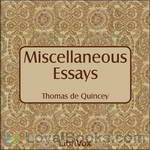 Miscellaneous Essays
Miscellaneous Essays
The Hunter Thompson of the 19th Century, de Quincey is best known for his Confessions of an English Opium Eater (an activity shared with his hero, Samuel Coleridge, much to Wordsworth’s dismay). However, de Quincey’s literary genius is best captured in his essays, and, according to Wikipedia: His immediate influence extended to Edgar Allan Poe, Fitz Hugh Ludlow and Charles Baudelaire, but even major 20th century writers such as Jorge Luis Borges admired and claimed to be partly influenced by his work. | |
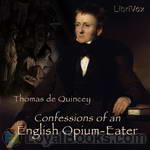 Confessions of an English Opium-Eater
Confessions of an English Opium-Eater
“Thou hast the keys of Paradise, O just, subtle, and mighty Opium!” Though apparently presenting the reader with a collage of poignant memories, temporal digressions and random anecdotes, the Confessions is a work of immense sophistication and certainly one of the most impressive and influential of all autobiographies. The work is of great appeal to the contemporary reader, displaying a nervous (postmodern?) self-awareness, a spiralling obsession with the enigmas of its own composition and significance... | |
By: W. W. Jacobs (1863-1943) | |
|---|---|
 The Monkey's Paw
The Monkey's Paw
An eerie supernatural story, The Monkey's Paw follows the White family as they come to realize that nothing in life comes without a price or at the simple push of a button. First published in 1902, the short story powerfully suggests that one should not interfere with the course of nature, as cheating fate can result in unforeseen consequences that leave one with more than they bargained for. Set in England, the tale opens on a dark and stormy night inside Laburnam Villa, home to Mr. and Mrs... | |
By: Charles Spurgeon (1834-1892) | |
|---|---|
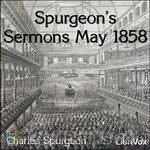 Spurgeon's Sermons May 1858
Spurgeon's Sermons May 1858
Charles Spurgeon was a popular Baptist minister in London in mid-Victorian times; his ministry was highly influential and had a significant effect on many families in London and further afield. It was difficult to find a hall large enough to accommodate the crowd who wished to hear him. At times the Royal Surrey Gardens’ Music Hall was hired to accomodate the Sunday congregation; this could seat 10,000 but large numbers were unable to gain admittance. His world-wide heritage is very much with us today through the many chuches built, missionary work begun, children’s charity founded and theological colleges established as a result of his ministry... | |
 Morning and Evening: Daily Readings
Morning and Evening: Daily Readings
Organized by week, this devotional has a morning and evening meditation for every day of the year. Although these devotions are short in length, they are filled with spiritual goodness. In just a few sentences, Spurgeon is able to convey the wisdom of Scripture with eloquence and purpose. These daily messages provide Christians with the spiritual energy they need to begin and end each day. Spurgeon weaves a verse of Scripture into each devotion, helping readers draw deeper meaning out of the selected passages... | |
By: Catharine Parr Traill (1802-1899) | |
|---|---|
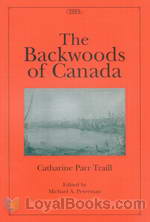 The Backwoods of Canada
The Backwoods of Canada
The writer is as earnest in recommending ladies who belong to the higher class of settlers to cultivate all the mental resources of a superior education, as she is to induce them to discard all irrational and artificial wants and mere useless pursuits. She would willingly direct their attention to the natural history and botany of this new country, in which they will find a never-failing source of amusement and instruction, at once enlightening and elevating the mind, and serving to fill up the void left by the absence of those lighter feminine accomplishments, the practice of which are necessarily superseded by imperative domestic duties... | |
By: Selma Lagerlöf (1858-1940) | |
|---|---|
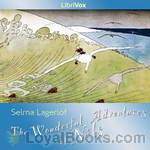 The Wonderful Adventures of Nils
The Wonderful Adventures of Nils
Selma Lagerlöf was born in Vaermland, Sweden, in 1858 and enjoyed a long and very successful career as a writer, receiving the Nobel-Price in Literature in 1909. She died in Vaermland in 1940. The Wonderful Adventures of Nils (Orig. Nils Holgerssons underbara resa genom Sverige) is a famous work of fiction by Selma Lagerlöf, published in two parts in 1906 and 1907. The background for publication was a commission from the National Teachers Association in 1902 to write a geography reader for the public schools... | |
 Invisible Links
Invisible Links
Selma Lagerlöf was born in Vaermland, Sweden, in 1858 and enjoyed a long and very successful career as a writer, receiving the Nobel-Price in Literature in 1909. She died in Vaermland in 1940. Invisible Links (Osynliga länkar) is a collection of short stories with an underlying theme about the links that influence and guide people’s actions and lives. It was first published in 1894 and the English translation in 1895. The stories are often set in Lagerlöf’s Vaermland, but they also depict legends and history of Sweden, and some have connections to other works by Lagerlöf. Invisible Links is a good introduction to the writings of Selma Lagerlöf. | |
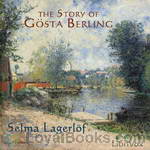 The Story of Gösta Berling
The Story of Gösta Berling
The Story of Gösta Berling" was published in Sweden in 1894 and immediately brought its author into prominence.The tales are founded on actual occurrences and depict the life in the province of Värmland at the beginning of the 19th Century century. Värmland is a lonely tract in the southern part of Sweden, and has retained many of its old customs, while mining is the principal industry of its sparse population. It consists of great stretches of forest, sloping down to long, narrow lakes, connected by rivers.Miss Lagerlöf has grown up in the midst of the wild legends of her country, and, deeply imbued with their spirit, interprets them with a living force all her own. | |
 The Emperor of Portugallia
The Emperor of Portugallia
Selma Lagerlöf was born in Vaermland, Sweden, in 1858 and enjoyed a long and very successful career as a writer, receiving the Nobel-Price in Literature in 1909. She died in Vaermland in 1940. The Emperor of Portugallia was first Published 1914 in Sweden, and 1916 in English, translated by Velma Swanston Howard. The Story i set in Vaermland around 1860 or 1870. In the centre is Jan of Ruffluck Croft. He loves his daughter more than anything, but when she moves to Stockholm and never sends a word home about her doings, he sinks into a dream-world where she is a noble Empress of Portugallia... | |
By: A. Alpheus | |
|---|---|
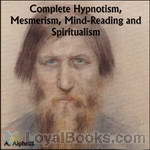 Complete Hypnotism, Mesmerism, Mind-Reading and Spiritualism
Complete Hypnotism, Mesmerism, Mind-Reading and Spiritualism
Written in 1903, just sixty years after the word ‘hypnotism’ was coined, this book explores the contemporary understanding of the nature, uses and dangers of the technique. Hypnotism has been practiced for many centuries, but it was in the mid-to-late nineteenth century that it became a particularly fashionable way to explore the human mind. Although understanding of the subject has evolved considerably over subsequent years, this book remains a fascinating insight into a technique once thought to be at the forefront of medical science. | |
By: George Herbert (1593-1633) | |
|---|---|
 Selection from 'The Temple'
Selection from 'The Temple'
George Herbert (April 3, 1593 – March 1, 1633) was a Welsh poet, orator and a priest. Throughout his life he wrote religious poems characterized by a precision of language, a metrical versatility, and an ingenious use of imagery or conceits that was favored by the metaphysical school of poets. He is best remembered as a writer of poems and hymns such as “Come, My Way, My Truth, My Life” and “The King of Love My Shepherd Is.” | |
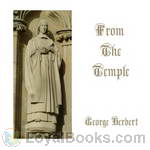 From The Temple
From The Temple
George Herbert was a country minister, and a protégé of the great metaphysical poet John Donne. In The Temple, Herbert combines these two aspects of his training in one of the greatest cycles of religious poetry ever written. This is reading of a selection of these poems. | |
By: Alexander Pope (1688-1744) | |
|---|---|
 An Essay on Man
An Essay on Man
Pope’s Essay on Man, a masterpiece of concise summary in itself, can fairly be summed up as an optimistic enquiry into mankind’s place in the vast Chain of Being. Each of the poem’s four Epistles takes a different perspective, presenting Man in relation to the universe, as individual, in society and, finally, tracing his prospects for achieving the goal of happiness. In choosing stately rhyming couplets to explore his theme, Pope sometimes becomes obscure through compressing his language overmuch... | |
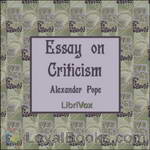 An Essay on Criticism
An Essay on Criticism
An Essay on Criticism was the first major poem written by the English writer Alexander Pope (1688-1744). However, despite the title, the poem is not as much an original analysis as it is a compilation of Pope’s various literary opinions. A reading of the poem makes it clear that he is addressing not so much the ingenuous reader as the intending writer. It is written in a type of rhyming verse called heroic couplets. | |
By: James Boswell (1740-1795) | |
|---|---|
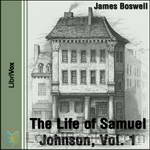 The Life of Samuel Johnson
The Life of Samuel Johnson
Boswell’s Life of Samuel Johnson is widely considered to be the greatest English-language biography ever written. It was revolutionary in its efforts to represent Johnson as he was, celebrating his flaws as well as his genius, and in Boswell’s decision to represent Johnson primarily by quoting his writings and relating personal anecdotes rather than relying on matters of public record. From the time of its publication till now, The Life of Johnson has been one of the most popular and influential books ever written. | |
By: Yacki Raizizun | |
|---|---|
 The Secret of Dreams
The Secret of Dreams
A guide to different kinds of dreams, their meanings, and how they influence our waking lives. | |
By: Amy Lowell (1874-1925) | |
|---|---|
 Dome of Many-Coloured Glass
Dome of Many-Coloured Glass
This is a collection of lyrical poems, sonnets and verses for children by Amy Lowell."For quaint pictorial exactitude and bizarrerie of color these poems remind one of Flemish masters and Dutch tulip gardens; again, they are fine and fantastic, like Venetian glass; and they are all curiously flooded with the moonlight of dreams. . . . Miss Lowell has a remarkable gift of what one might call the dramatic-decorative. Her decorative imagery is intensely dramatic, and her dramatic pictures are in themselves vivid and fantastic decorations." (Richard Le Gallienne, 'New York Times Book Review', 1916) | |
 Men, Women and Ghosts
Men, Women and Ghosts
This is a collection of long poems and short stories by Amy Lowell. | |
By: Sholem Aleichem (1859-1916) | |
|---|---|
 Jewish Children (Yudishe Kinder)
Jewish Children (Yudishe Kinder)
Although written from a child’s perspective, this is not a kids book but a series of funny, poignant, and sometimes disturbing stories about life in a late 19th-century Russian-Jewish village — the world of my grandparents. Sholem Rabinovich (1859-1916) was born in Pereiaslav, Ukraine and later immigrated to New York. His short stories about Tevye and his daughters were freely adapted into the musical FIDDLER ON THE ROOF. Rabinovich’s will contained the following injunction: “Let my name be recalled with laughter or not at all.” His translator, Hannah Berman, was Irish of Lithuanian descent.Some of these stories may be too intense for younger children. | |
By: Henry L. Mencken (1880-1956) | |
|---|---|
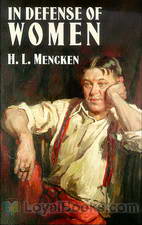 In Defense of Women
In Defense of Women
In Defense of Women is H. L. Mencken’s 1918 book on women and the relationship between the sexes. Some laud the book as progressive while others brand it as reactionary. While Mencken didn’t champion women’s rights, he described women as wiser in many novel and observable ways, while demeaning average men. According to Mencken’s biographer, Fred Hobson: Depending on the position of the reader, he was either a great defender of women’s rights or, as a critic labelled him in 1916, ‘the greatest misogynist since Schopenhauer’,'the country’s high-priest of woman-haters.’ | |
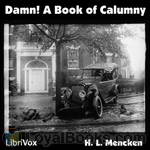 Damn! A Book of Calumny
Damn! A Book of Calumny
Henry Louis “H. L.” Mencken (1880 – 1956) was an American journalist, essayist, magazine editor, satirist, acerbic critic of American life and culture, and a student of American English. Known as the “Sage of Baltimore”, he is regarded as one of the most influential American writers and prose stylists of the first half of the 20th century. Mencken is perhaps best remembered today for The American Language, a multi-volume study of how the English language is spoken in the United States, and for his satirical reporting on the Scopes trial, which he named the “Monkey” trial.” | |
By: William Morris (1834 — 1896) | |
|---|---|
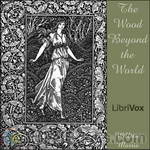 The Wood Beyond the World
The Wood Beyond the World
MANUAL OF SURGERY, OXFORD MEDICAL PUBLICATIONSBY ALEXIS THOMSON, F.R.C.S.Ed.PREFACE TO SIXTH EDITION Much has happened since this Manual was last revised, and many surgical lessons have been learned in the hard school of war. Some may yet have to be unlearned, and others have but little bearing on the problems presented to the civilian surgeon. Save in its broadest principles, the surgery of warfare is a thing apart from the general surgery of civil life, and the exhaustive literature now available on every aspect of it makes it unnecessary that it should receive detailed consideration in a manual for students... | |
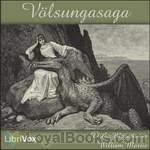 Völsungasaga
Völsungasaga
The 13th century Icelandic Völsungasaga is usually read by people studying the Poetic Edda or Wagner’s Ring – which obscures the fact it is a much better story than practically everything derived from it. A riddle-telling dragon, a broken sword, a hooded mysterious wanderer – cannibalism, incest, mutilation, and sensitive hearts. This is R-rated Tolkien – and the unashamedly archaic Magnússon-Morris translation is up for the adventure.Passages spoken in Old Norse are taken from the edition of Sophus Bugge, Berlin, 1891. | |
 News From Nowhere
News From Nowhere
News from Nowhere (1890) is a classic work combining utopian socialism and soft science fiction written by the artist, designer and socialist pioneer William Morris. In the book, the narrator, William Guest, falls asleep after returning from a meeting of the Socialist League and awakes to find himself in a future society based on common ownership and democratic control of the means of production. In this society there is no private property, no big cities, no authority, no monetary system, no divorce, no courts, no prisons, and no class systems... | |
 The Well at the World's End, Book 1: The Road unto Love
The Well at the World's End, Book 1: The Road unto Love
The Well at World's End is thought to be one of the first examples of an entirely fictional fantasy world, and has greatly influenced later fantasy writers such as C.S. Lewis and J.R.R. Tolkien. The book follows the travels of Ralph, a prince of a tiny country, as he disobeys his fathers wishes and runs away from home to adventure in the world, and seek out the fabled Well at World's End, said to grant eternal youth to those who drink from it. | |
 The House of the Wolfings
The House of the Wolfings
William Morris (1834-1896) was a writer, illustrator and medievalist from the Romantic period and associated with other renowned authors of the time such as Dante Rossetti. His fascination with ancient Germanic and Norse people dominated his writings, the first to be set in an entirely invented fantasy world and which helped to establish the fantasy genre. The House of Wolfings (1890), some argue, is a demonstration of Morris' socialism as the society described, though not an utopia, is clan-based, elects leaders and makes decisions in clan tribal meetings... | |
By: Grace Livingston Hill (1865-1947) | |
|---|---|
 The Best Man
The Best Man
Cyril Gordon, a young and handsome secret service agent is running from pursuers who desperately want the information he holds. He hides out from them in a church, and then finds himself married to a woman he’s never seen before. A sweet and sometimes, funny, romance, with several exciting chases. | |
 The Enchanted Barn
The Enchanted Barn
The Hollisters, a bright, spirited, wholesome family, are compelled to move into the country. After many efforts to secure a home, Shirley, eldest of the Hollisters, contrives a way out by renting a magnificent old stone barn at a ridiculously low price, transforming it into a house. The owner of the barn is not an ordinary landlord, as you will see, for he is a young man with fine ideals, and he is not content with establishing Shirley and her family in the quaintly beautiful old place, but makes the world a much happier place to live in for all of them. | |
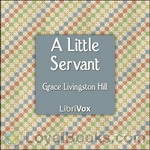 A Little Servant
A Little Servant
A short story of a little girl who is Jesus’ servant and how she won the heart of an unbelieving gardener. | |
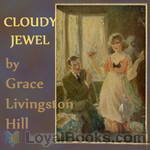 Cloudy Jewel
Cloudy Jewel
Julia Cloud, the oldest--and most responsible--child of her family, helped raise her four siblings due to their mother's long-time illness and father's death. After faithfully nursing two ill brothers (who died), she then cared for her invalid mother for many years. When Julia's mother passes on, her only surviving sibling Ellen fully expects--and nearly demands--that her spinster sister come live with her family. But to earn her keep, Julia must be their live-in housekeeper and babysitter for Ellen's four children. But Julia's college-age niece and nephew arrive unexpectedly from California and offer Aunt Cloudy Jewel a surprise opportunity she never expected in her wildest dreams. | |